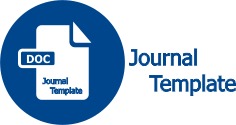KONTROL PEREMPUAN PADA KEPEMILIKAN SUMBER DAYA YANG LEMAH DALAM USAHA KELUARGA.
DOI:
https://doi.org/10.30651/blc.v5i01.701Abstrak
Understanding the concept of gender as the division of roles of men and women who are socially and culturally constructed, needs to be done in order to realize equality and gender justice. The understanding, necessary to place women as subjects of development, in order to improve the position and role of women in national and state life. This research is done on the women sellers crackers, data collection was done by a written interview. Data were analyzed using the Harvard Gender Analysis Method, to determine the four basic elements: (1) Profile of activity based on gender division of labor, (2) Access Profile, (3) Profile control; (4) Factors related to the things that lead to the distribution of work, the profiles, access and community control. Results obtained in the activity profiles based on gender division of labor, which includes a list of tasks men and women, mothers appear dominant task. Profile access and control over resources within the family, women in a weak position. While in reality, women have the "role and employment" which determines the continuity of family life. For that education and training activities can be provided as one way in order to empower women to be more efficient and effective manner.
Â
Kata Kunci : Kontrol, Kepemilikan, Sumber Daya, dan Usaha Keluarga.
Referensi
Baidan, Nasrudin. 1999. Tafsir bi Al-Ra'yi: Upaya Penggalian Konsep Wanita Dalam Al-Qur'an. Yogyakarta: Pustaka Pelajar.
Bungin, Burhan. 2003. Analisis Data Penelitian Kualitatif.- Pemahaman Filosofis dan Metodologis ke Arah Penguasaan Model Aphkasi. Jakarta: PT Raja Grafindo Persada.
Echols, M.John & Hasan Shadily. 1995. Kamus Inggris Indonesia: An English Indonesian Dictionary. Jakarta: PT Gramedia.
Hafidz, Wardah & Wiladi Budiharga. 1999. Panduan Pendidikan Politik Bagi Perempuan. Kerjasama Komite Perempuan Pro Demokrasi. Makalah. PSW Universitas airlangga dengan, USAID/OTI.
Kar ati, Nur jahja M, Faktor-faktoryang Mempengaruhi Prestasi Kerja Wanita Karier: Studi Kasus di Kotamadya Surabaya. Lembaga Penelitian Universitas Airlangga.
Muthali'in, Ahmad. 2001. Bias Gender Dalam Pendidikan. Surakarta: Muhammadiyah University Press. Monografi Kelurahan Medokan Ayu Kecamatan Rungkut Kota Surabaya Tahun 2002 dan Pendataan Profil Kelurahan 2004.
Nasution. 2003. Metode Penelitian Naturalistik Kualitatif. Bandung: Tarsito.
Nawangningrum, Dina. 1995. Karier Perwira Wanita Angkatan Darat RI. Tesis Magister.Program Studi Kajian Wanita Program Pascasariana Universitas Indonesia.
Salih, Suad Ibrahim. 2001. Kedudukan Perempuan Dalam Islam. Editor : Mudzar, dkk. Wanita Dalam Masyarakat Indonesia: Akses, Pemberdayaan dan Kesempatan. Yogyakarta: Sunan Kalijaga Press.
Sugiarti. 2002. Makalah Lokarya Penelitian Berspektif Gender. Perguruan Muhammadiyah Se-Jawa Timur. PSWK. Univrsitas Muhammadiyah Malang .














